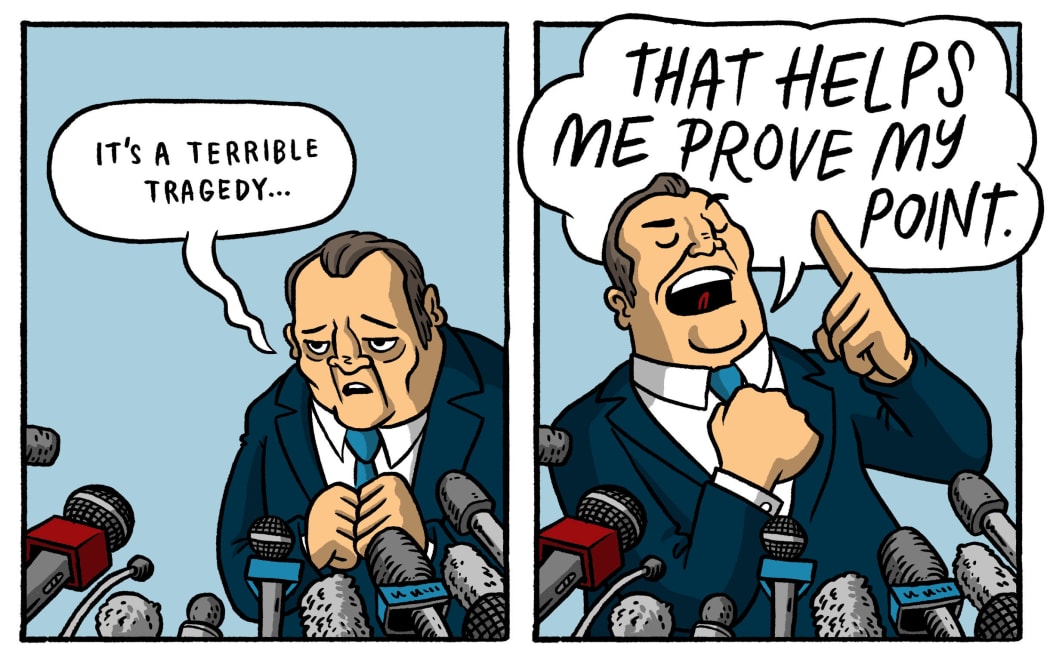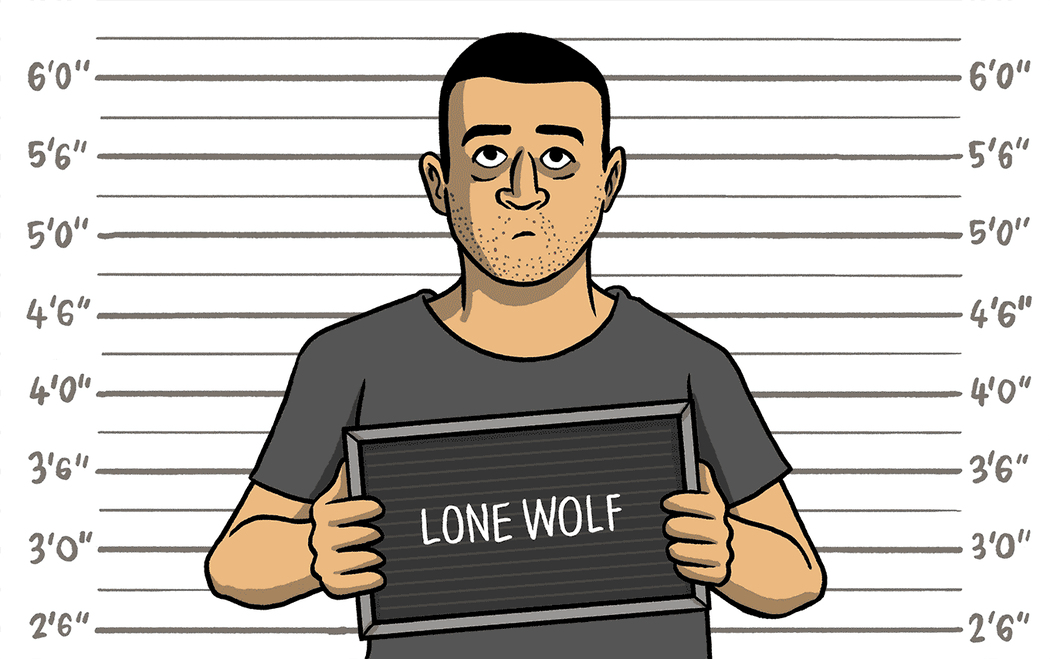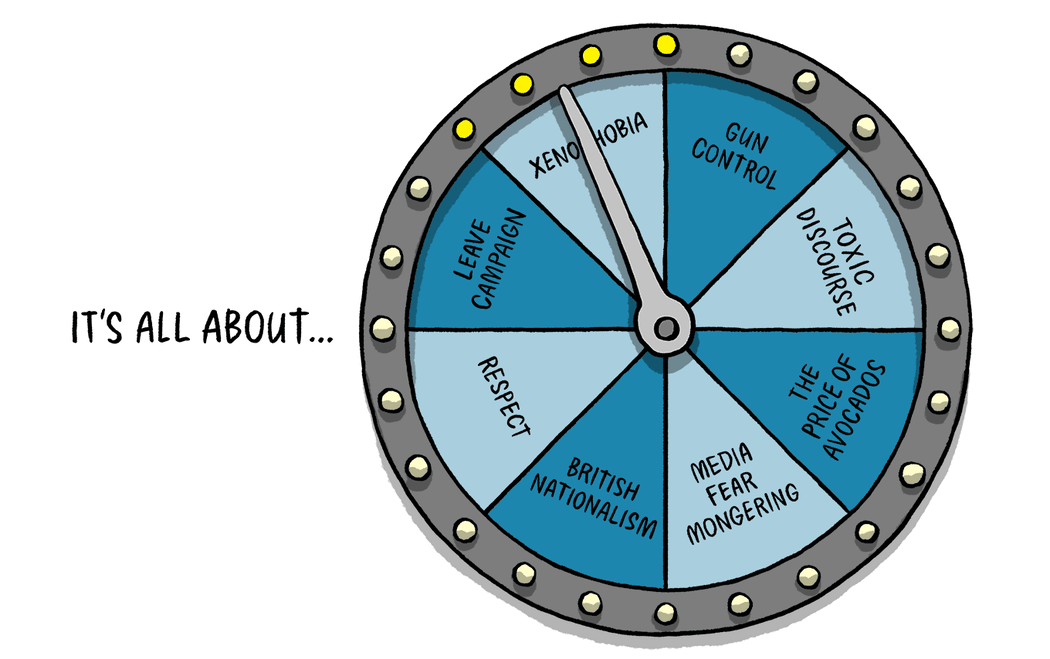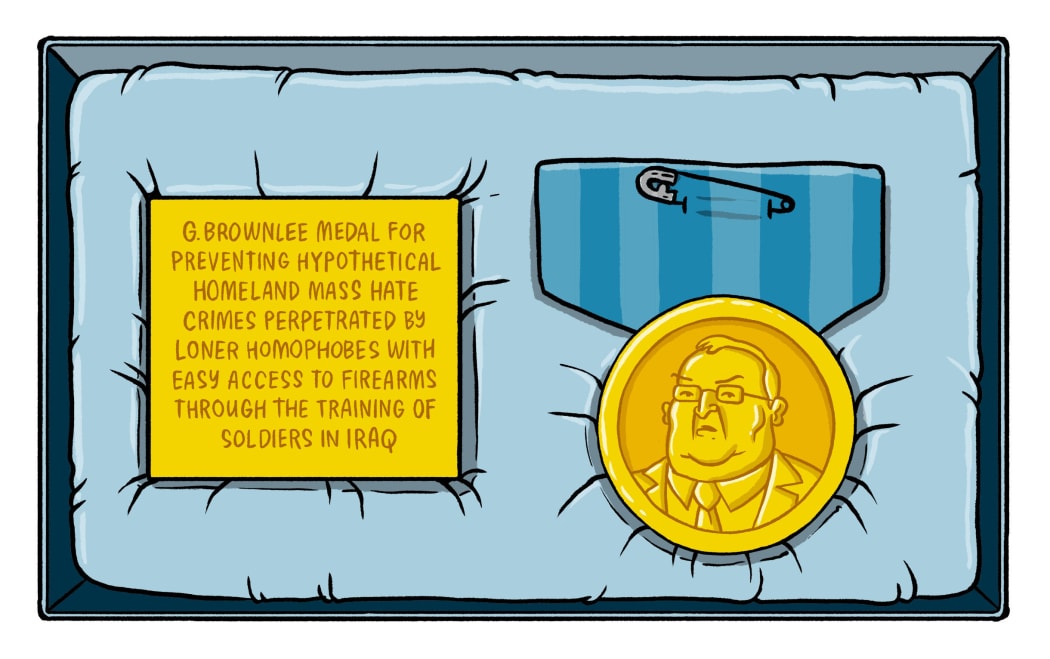Murder and politics?
Tragedies in Florida and Yorkshire have prompted waves of shock and grief, but also heated debate about political significance, claims about political point scoring, and claims that claims about political point scoring are political point scoring.
For those at the back, a quick recap?
Forty-nine people were killed at a gay nightclub, the Pulse, in Orlando on 12 June when Omar Mateen opened fire with a semi-automatic weapon. The New York born killer was a homophobe and supporter of ISIS, though according to the CIA he had not interacted with the terrorist organisation.
On Thursday, 41-year-old UK Labour MP and refugee advocate Jo Cox was shot and stabbed close to her constituency office in Birstall. The man arrested and charged in relation to the assassination, Thomas Mair, reportedly has links to extreme-right and Nazi groups, and told a court, "My name is Death to traitors, freedom for Britain." Like Mateen, Mair is thought to have been a "lone wolf" rather than a representative of any organisation.
And the political response?
The most immediately controversial reaction to the Orlando incident came from the presumptive Republican candidate for president, Donald Trump, who tweeted, "Appreciate the congrats for being right on radical Islamic terrorism", attacked President Barack Obama for being weak on terrorist threats and ramped up his proposed prohibition on Muslim immigration to include anyone from countries that had "a record of terrorism".
Wouldn't that rule out a host of countries including, say, Spain, Britain and Ireland, and given the Orlando killer is US-born, doesn't that definition include the US?
Maybe. Sad!
Is Islamist extremism a typical part of mass shootings in the US?
No. Washington Post research shows that "the vast majority of deadly shooting incidents are not related to any political motivation - terrorist or otherwise".
Did the attack prompt debate on American gun laws?
Yes. Even Trump - despite being unclear in his thinking on the subject - has suggested gun laws should be tighter.
So we can expect action in Congress at last?
There was action in Congress this week.
What action?
The Senate took the action of voting down four measures to strengthen background checks and prevent those on terrorist suspect lists from purchasing firearms.
And what of the Cox attack?
The murder took place one week before the referendum over Britain remaining in the European Union, in a campaign that has, in the words of one observer, "become much more bitter and divisive than any British general elections in living memory". While the immediate political response was to suspend campaigning for a day, there was heated debate about whether the murder could be legitimately linked to the rhetoric from the "leave" camp, and whether it stemmed in any way from the "toxic discourse" around politics, on social media or in the tabloid press. There was talk of a strain on "the veil that separates civilisation from mayhem", and "the slide from civilisation to barbarism", as well as objections that making such claims were in themselves attempts to politicise a tragedy.
But weren't both crimes politicised intrinsically, given the remarks the killers made?
Yes. But on all sides there have been examples of the events being used to forward agendas, and a range of tendentious coverage.
Isn't that inevitable? Isn't this illustrated question-and-answer format doing that by selecting what to include and so on?
No. All right, maybe.
There has been no mention in this column, for example, that both alleged killers are reported to have had histories of mental health issues. Didn't they?
Yes. It could be said, however, that just about any such act is not sane. It could also be said that people with mental illnesses are not divorced from the mood and rhetoric of the world around them. And it could also be said that approximately 100 percent of people with mental health issues do not commit murder.
At least in New Zealand there is no one attempting to make political headway on the back of such tragedies.
Arguably Winston Peters was doing just that, when his response to a parliamentary motion "to express sympathy with the victims of the Orlando shooting" was to say, "we are inviting that problem [Islamic extremism] into our country by the looseness and the cavalier attitude we are taking as a country towards matters of security".
Meanwhile, Defence Minister Gerry Brownlee, in announcing an extension to New Zealand's troop training deployment in Iraq this week, said New Zealand was "not insulated from the sort of events we have seen in Orlando".
Is he saying that deploying troops to Iraq makes New Zealand safer from homicidal homophobes?
As luck would have it, RNZ's Susie Ferguson asked him precisely that.
And he said?
"You've used the description that's generally bandied about. The reality is [Mateen] claims allegiance to ISIL... We do need to make sure that when there is a big international effort, 66 countries in a coalition trying to defeat these people, that we play our part."
Where does all that leave us?
On the one hand, there is a temptation to regard both attacks, and all similar outrages, as despicable crimes, and to prosecute them accordingly, but not dignify the offenders by assigning any special category.
Is there another hand?
On the other hand, everything is connected. A remark by Bill Clinton about the Oklahoma bombing of 1995, has been cited in reference to these recent attacks. He said: "What we learned from Oklahoma City is not that we should gag each other or we should reduce our passion for the positions that we hold, but the words we use really do matter, because... there's this vast echo chamber, and they go across space, and they fall on the serious and the delirious alike. They fall on the connected and the unhinged alike."
Any other hands?
A final word from Jo Cox's widower: "She would have wanted two things above all else to happen now, one that our precious children are bathed in love and two, that we all unite to fight against the hatred that killed her. Hate doesn't have a creed, race or religion, it is poisonous."

* This column is part of a weekly series published every Wednesday, by graphic artist Toby Morris and journalist Toby Manhire.





